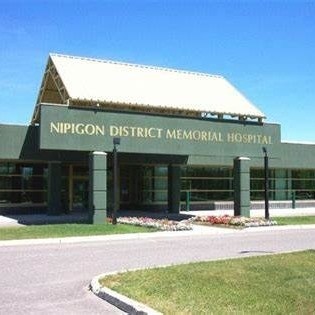NIPIGON – For the past 25 years, Lakehead University’s Centre for Health Care Ethics has been tasked to help healthcare professionals tackle ethical-related decisions that might come up against while in the workplace.
"Ethics is something that healthcare professionals confront every day,” said Ryan Tonkens, a bioethicist from Lakehead University’s Centre for Health Care Ethics.
It’s important to understand that bioethics are guiding principles that prioritize patient autonomy, as well as, protecting the professional from legal liability.
“Ethics and the law overlap a lot. Our policies and procedures are based on standards, laws, certain bills, and things like that. So, we do have a lot of processes in place to manage ethical decision-making, and we do have the advantage to meet as a group and have a discussion,” said Nipigon Memorial Hospital CEO Cathy Eady.
Healthcare providers base ethical procedures on standards of law through their organization’s ethics policy framework of which the Centre for Health Care Ethics is used as consultants.
For example, some issues that healthcare professionals struggle with are conflicts of interest, privacy and confidentiality, balancing patient autonomy, and medical-assisted death.
"We might have, say, a patient or a resident in LTC who we think is making a poor choice or is maybe doing things that are harmful to them. There might be questions about the extent to which the resident has the capacity to consent or the extent to which they understand what they're doing and are doing so knowingly and willingly," Tonkens said.
“The thing about ethics is, there's no right or wrong answer. Bioethicists aren’t going to be the ethics police and tell you this is the decision you should make. They just help to facilitate the discussion a bit more,” said Eady.
For example, a common question a professional might ask a bioethicist involves a patient’s right to consent. Particularly, when they are being admitted to the hospital. Although a professional might feel a procedure is necessary, the patient may disagree. In cases involving children, the parent might disagree.
“Consent and capacity is something that comes up a lot. Whether we take that child’s blood based on the parents or the consent and capacity of someone whose saying they want to go to long-term care or they don’t. They want to have the surgery or they don’t,” Eady said.
If a patient denies treatment, professionals need to assess whether or not the patient has the insight to know the risk of not receiving the treatment.
“With patient and family-centred care, we really look to that individual, and we also say if they are capable they make the decision, and it might not be necessarily what we agree with, but it’s their decision,” said Eady.
In the case of dementia patients, the ethical questions around consent and the capacity to consent a more complicated. The question is where is the guiding line to knowing when a patient can knowingly or willingly consent?
“During a day, [patients] can be capable at points and not capable at points, and how do we manage that,” said Eady.
If the patient is not capable of making a decision, the professional can seek out a Power of Attorney to assist in the decision.
This will allow the patient to maintain their autonomy while also having someone capable of making an informed decision on the best method of care.
“One we see often is how best to balance or harmonize a patient’s autonomy or respect for their self-determination. Maybe their decisions are harmful to them or others, or they’re not being preserved as beneficial to them,” said Tonkens.
Another example Tonkens points out is the ethical questions when a person’s professional role spills out into the community.
“We see patients or families of patients in the grocery store or the bank. There might be some curiosity or people want some information, so they are asking questions and we have to maintain privacy and confidentiality,” explained Tonkens.
Tonkens acknowledges that ethics around privacy and confidentiality are more common in smaller communities.
"We're their neighbours, you live down the street, and they know your family. We talked a lot about the privacy piece of that, but also keeping that therapeutic boundary when they are your neighbour and they're asking how your mum is doing and they know your family,” said Eady.
There is a balance between being professional and a neighbour that healthcare providers need to maintain.
Eady explains that when professionals are approached by neighbours and patients outside their workplace setting, the conversation should be polite, but also professional in terms of patient confidentiality.
“There is no code of secrecy here, but it’s what you are able to share from a privacy lens vs. what you are not able to share,” said Eady.
“We are here to support the ethical delivery of healthcare. Healthcare professionals are amazing and they’re doing really great work, and they are trying to do the best that they can with the resources they have to promote high-quality healthcare,” said Tonkens.
